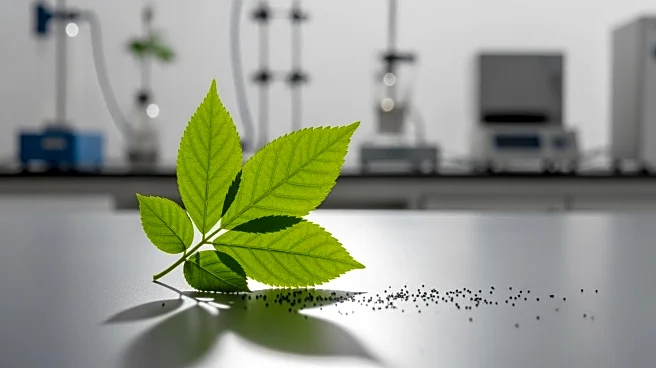What's Happening?
Researchers have developed a method for synthesizing iron oxide nanoparticles using Moringa oleifera and Psidium guajava leaf extracts. This green synthesis approach utilizes the bioactive compounds in the plant
extracts to reduce iron ions and form nanoparticles. The process involves thermal treatments that modify the nanoparticles' physicochemical properties, enhancing their potential for applications in photocatalysis, environmental remediation, and biomedicine. The study highlights the role of plant-derived molecules in stabilizing and capping the nanoparticles, preventing aggregation and maintaining nanoscale size.
Why It's Important?
The green synthesis of iron oxide nanoparticles represents a significant advancement in sustainable nanotechnology. By using plant extracts, the method reduces reliance on toxic chemicals and promotes environmentally friendly practices. This approach has potential implications for various industries, including healthcare and environmental management, by providing safer and more sustainable solutions. The research underscores the importance of exploring natural resources for technological innovation, potentially influencing future developments in nanotechnology and sustainable manufacturing.
What's Next?
Further research is expected to explore the applications of these nanoparticles in various fields, such as medicine and environmental science. The study may lead to the development of new products and technologies that leverage the unique properties of plant-derived nanoparticles. Collaboration with industry partners could facilitate the commercialization of these sustainable solutions, driving innovation and adoption in relevant sectors.
Beyond the Headlines
The use of plant extracts in nanoparticle synthesis raises ethical and environmental considerations. This approach promotes sustainability and reduces chemical waste, aligning with broader environmental goals. The research may influence cultural perceptions of technology and sustainability, encouraging a shift towards more natural and eco-friendly solutions in scientific and industrial practices.










